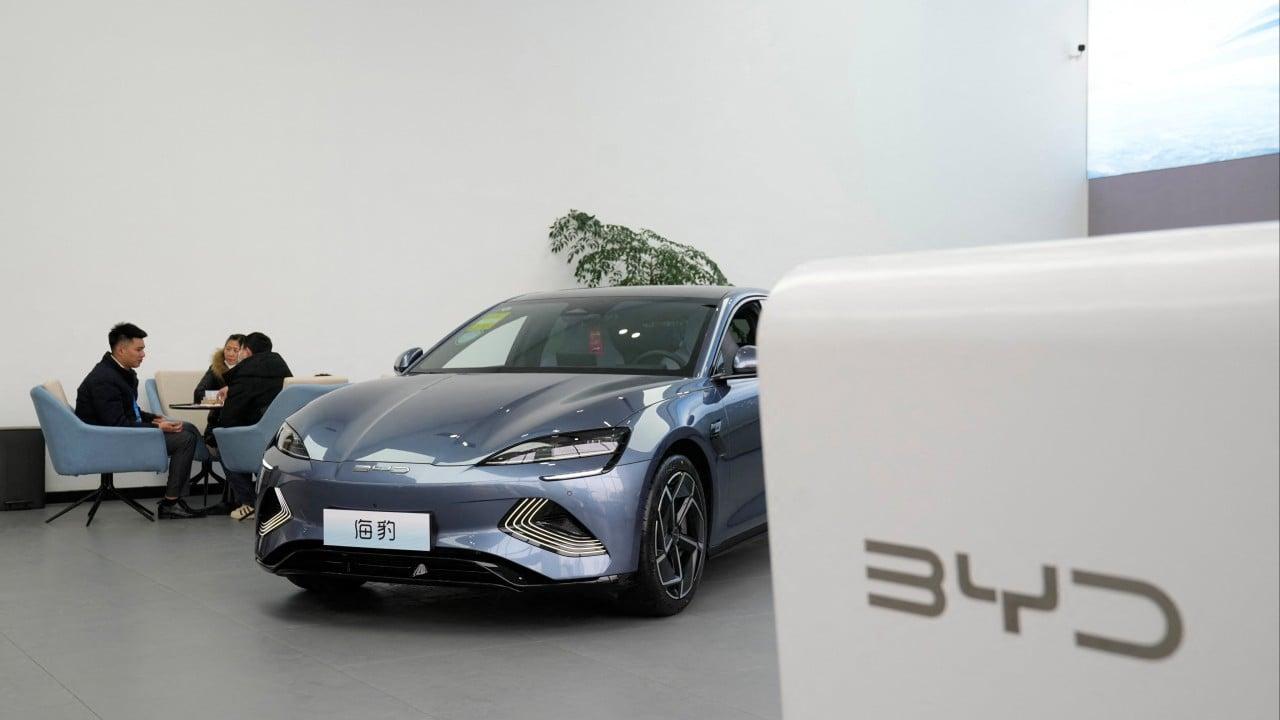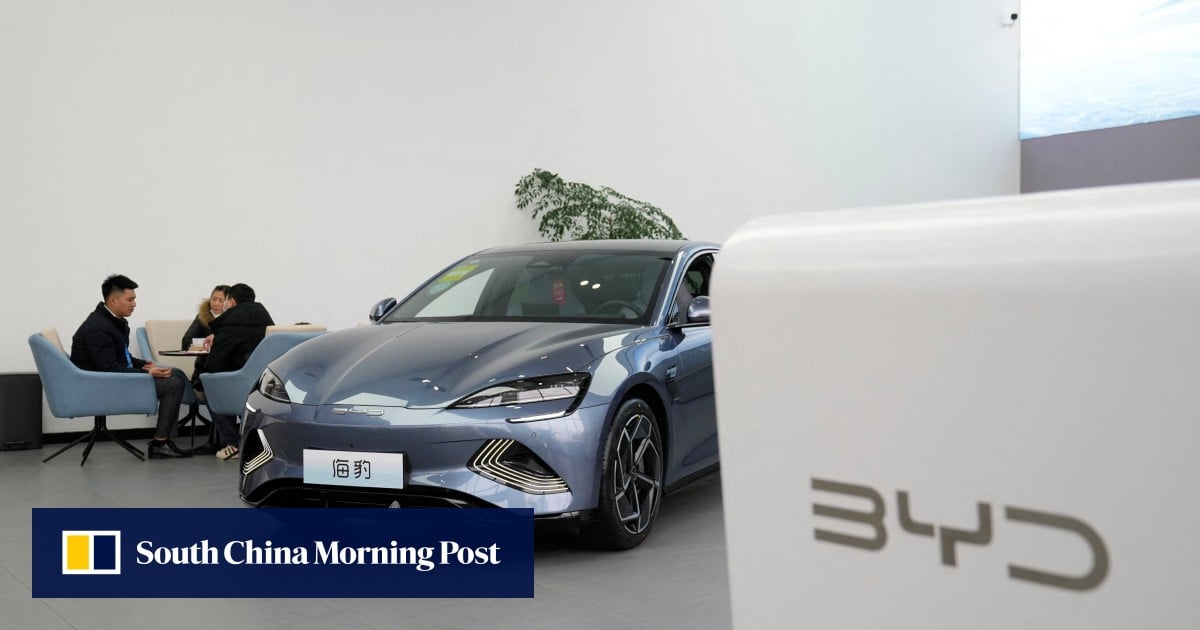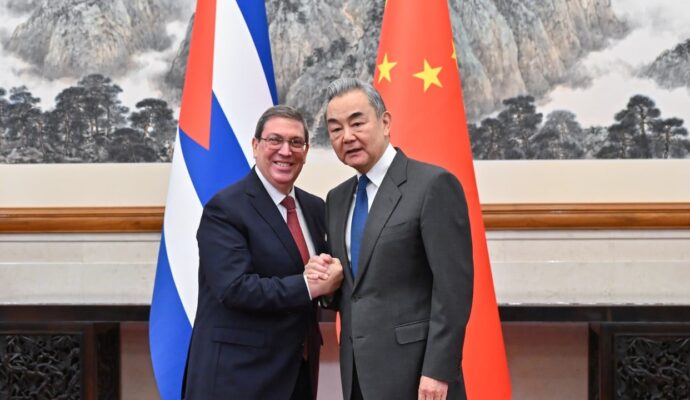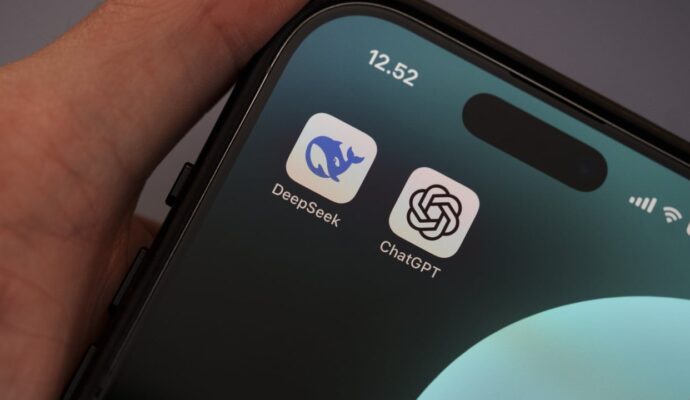

Unlike Tesla and other major Chinese EV start-ups such as Nio, Xpeng and Li Auto, which assemble premium EVs priced at more than 200,000 yuan, BYD’s battery-powered cars target middle-class customers in the world’s largest automotive market. BYD’s EVs are usually priced between 100,000 and 200,000 yuan.
Sales of new-energy vehicles, which include pure battery EVs and plug-in hybrids, fell 6.3 per cent in January after recording blistering growth of 90 per cent in 2022, the China Passenger Car Association said.
“Although we are seeing softer demand for EVs since late last year and many leading EV makers have slashed their prices, BYD could benefit from that as it has a rather wide range of products priced at different levels,” said CnEVpost’s Zhang.
Seagull, BYD’s new compact EV, is expected to debut at the 2023 Shanghai Auto Show in April. While its final price has not been disclosed yet, it is expected to be priced below 100,000 yuan.
Founded by Chinese billionaire Wang Chuanfu in 1995, BYD has been making vehicles since 2003. It mainly sells cars in mainland China, but is looking to become a global player with plans to expand in some overseas markets.
The company’s blade lithium iron phosphate battery packs have also proved to be very successful. Their battery cells are arranged in a manner that increases energy density while enhancing resistance to overheating. BYD supplies these blade batteries to Tesla’s factory in Berlin.
BYD’s battery installation levels in 2022 matched that of LG Energy Solution, which is the world’s second-largest battery maker after China’s CATL, according to South Korea-based SNE Research. BYD’s battery installation level grew 167 per cent year on year in 2022 to 70.4 gwh.

